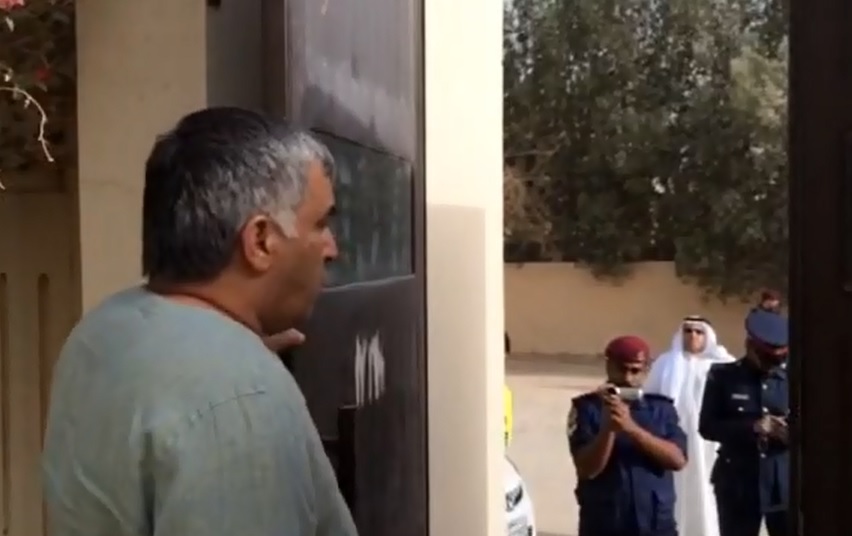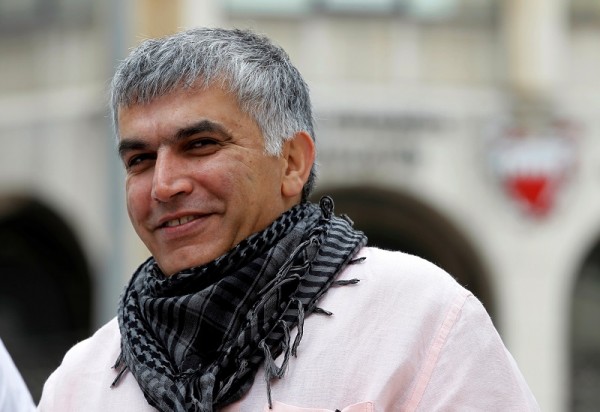Leading Bahraini human rights activist Nabeel Rajab was arrested today at 3 p.m. (GMT +2) at his home, reportedly for tweeting on alleged instances of torture at Bahrain’s Jaw prison.
According to Nedal Al Salman, a colleague of Rajab’s at the Bahrain Centre for Human Rights, police surrounded Rajab’s home and escorted him away in a police vehicle.
Speaking by telephone to the International Press Institute (IPI), Al Salman said that “it took them only 15 minutes to arrest him”, adding: “They surrounded the house so no one could get into the street. Nabeel himself asked them why they were taking him and one of the officers told him it was because of [his] accusation of torture.”
The Bahrain Centre for Human Rights later confirmed that Rajab had been served with a warrant charging him with “spreading false news of torture in Jaw Prison on Twitter”.
On Jan. 21 a court in Manama sentenced Rajab to six months in prison for his tweets implying a link between Bahraini security forces and Islamic State. A first appeals hearing had been scheduled for March 4, but has been postponed repeatedly. The next hearing is scheduled for April 15.
The January verdict was not the first time that Rajab, who has been under a travel ban since Nov. 2, 2014, has faced the spectre of imprisonment. Last May, he was released after serving two years behind bars for his role in the Arab Spring demonstrations against Bahrain’s royal family in February 2011.
IPI Director of Press Freedom Programmes Scott Griffen said IPI condemned today’s arrest.
“IPI calls on Bahraini authorities to immediately release Mr. Rajab, who is an internationally respected human rights defender, and to cease all efforts to stifle free speech and the free flow of information in Bahrain,” he said.
Rajab is the recipient of numerous international awards, such the Ion Ratiu Democracy Award and the Silbury Prize. In 2013, the Bahrain Centre for Human Rights received the Thorolf Rafto Memorial Prize for promoting democracy and human rights.
*This statement was updated shortly after publication to include information on the charges presented to Rajab.



